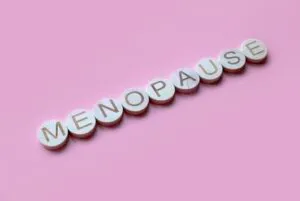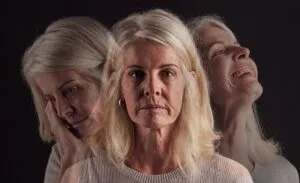 Men and women age differently, but age-related hormone fluctuations affect men and women in similar ways. Did you know that men can go through a type of menopause? Labeled “andropause” because it is not as defined as female menopause, male menopause affects a small portion of the aging male population. Andropause shares similar features with menopause, but it is not as severe as what some women experience once their reproductive years end.
Men and women age differently, but age-related hormone fluctuations affect men and women in similar ways. Did you know that men can go through a type of menopause? Labeled “andropause” because it is not as defined as female menopause, male menopause affects a small portion of the aging male population. Andropause shares similar features with menopause, but it is not as severe as what some women experience once their reproductive years end.
What is andropause?
Testosterone is a type of androgen, which is where the name “andropause” comes from. Known mainly as a sex hormone, testosterone also affects the tenor of a man’s voice, how much or how little facial hair he has, and his overall muscle mass. As men age, testosterone production drops at a rate of about 10 percent each decade starting at age 30. It’s a gradual decline that doesn’t affect every man in the same way. Some men experience little difference in everyday function while others experience extreme symptoms, which are classified under andropause. If you’re affected by andropause, you might experience:
- Hot flashes and trouble sleeping
- Mood changes, including irritability and depression
- Low sex drive and trouble getting or maintaining an erection
- Fatigue, muscle weakness and loss of strength
- Increased body fat and lack of energy
For women, the decline in hormone production is drastically different. Eventually, the ovaries stop producing reproductive hormones altogether, making women infertile after menopause. Men are still capable of producing testosterone well into their 80’s and even later. This is why doctors are hesitant to classify a “male menopause.” There isn’t a defined time parameter for male infertility or loss of reproductive capabilities.
Still, andropause primarily affects older men as they enter a new transition period in life. Libido lessens, sexual prowess diminishes and muscle mass weakens. You are more likely to experience extreme symptoms of testosterone depletion if you’re overweight or you have other medical problems, such as diabetes. About 30 percent of men in their 50’s suffer from andropause symptoms. Your doctor can determine if there are underlying problems affecting your physical and mental health.
Are there treatment options?
Low testosterone levels don’t affect every man, but for men who are suffering, andropause can cause other health problems as well, particularly osteoporosis and heart disease. It’s important to talk to your doctor about options for dealing with symptoms that interfere with your daily life. You may be advised to try lifestyle changes, such as exercising more, or dietary changes, such as avoiding certain foods that make problems worse.
There’s also hormone replacement therapy, which reintroduces testosterone into your body to boost your levels and level out your symptoms. Synthetic and natural versions exist, but natural hormones can be a better long-term option since they get released in steadier doses over time, effectively mimicking your body’s natural production levels before middle age. You don’t have to let andropause impact your ability to enjoy growing older. Start the conversation with your doctor about symptoms to find relief.
Sources:
https://www.webmd.com/men/guide/male-menopause
https://www.medbroadcast.com/condition/getcondition/andropause






